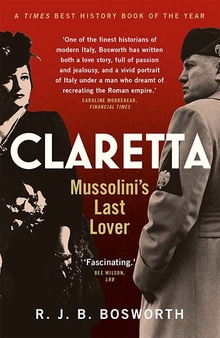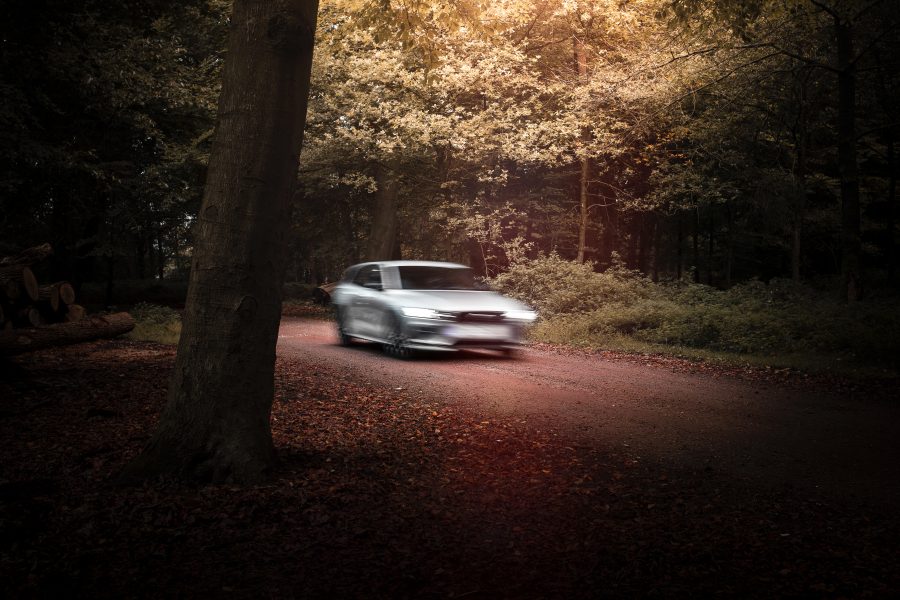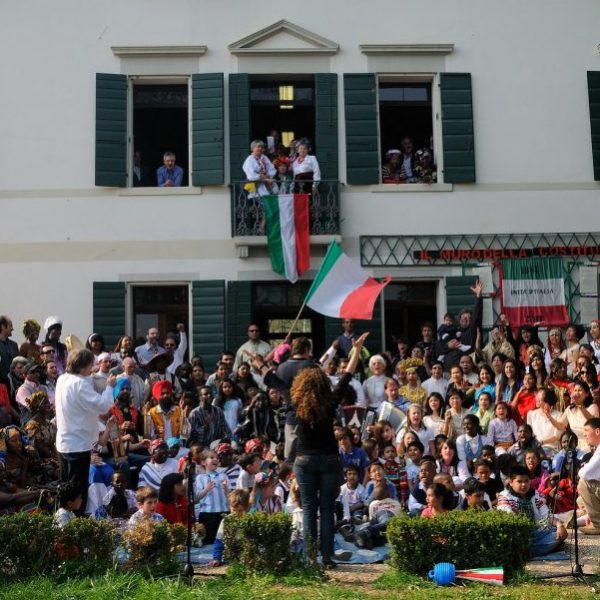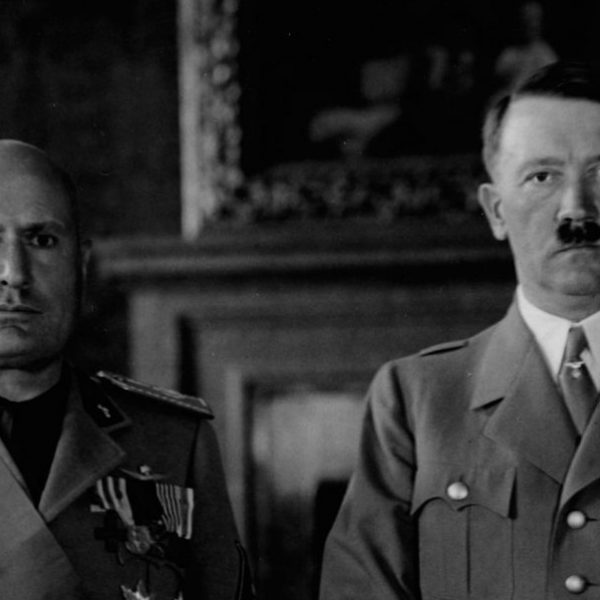Mussolini’s Last Lover
R.J.B. Bosworth—
The story began on 24 April 1932, a sunny day in Rome. That afternoon, the Petaccis, by now residing even more centrally and respectably at flat 6, 326 Corso Vittorio Emanuele, decided they deserved an outing. Mother Giuseppina, little sister Myriam (not yet nine), Claretta (who had just celebrated her twentieth birthday) and her fiancé, Lieutenant Riccardo Federici (who may have boasted noble antecedents), piled into their commodious, chauffeur-driven Lancia Astura limousine with its Vatican number plates. For propriety’s sake, Myriam was positioned as a sort of chaperone between Claretta and Riccardo; among good Catholics, bodily contact must not become incontinent (and Myriam was destined often to repeat the protective role while her sister dallied with a different partner). What a good idea it was to go for a spin down the new Fascist motorway that led to Ostia, the beach and the Tyrrhenian Sea!
A similar pleasurable thought occurred to the Duce. After all, for some years, he had grown accustomed to utilising the bathing hut at Castelporziano, so graciously made available to him by the Savoys, with its direct telephone connection to his office, its shower and a bed. On 24 April, having given his chauffeur, Ercole Boratto, the afternoon off, he decided to drive himself in his red Alfa Romeo 8C, oblivious to the fact that Boratto judged his master a poor driver, too easily distracted at the wheel.
After all, few clouds seemed to shroud the world that Mussolini bestrode. True, the fascistic Nazi party of the rather odd German Führer, Adolf Hitler, was gearing up for elections in July, where its vote was destined to expand exponentially, and the Depression was beating down on the German and most other European economies. But Italy seemed to have escaped the worst of the crisis through what was judged in many places its leader’s genius. To reinforce his fame, over the last few weeks the Duce had granted a set of interviews to the Polish-born, Swiss-residing, German-Jewish journalist, Emil Ludwig. Their exchange went agreeably well, Ludwig being beguiled by what he described as Mussolini’s good humour and mastery of detail when presented with more than four hundred questions. ‘In conversation,’ Ludwig reported, ‘Mussolini is the most natural man in the world . . . I have no hesitation in describing him as a great statesman.’ Perhaps there was a hint of future concern when discussion had wandered onto some potentially treacherous issues, but the dictator, as yet no friend of Hitler, pronounced worthily that ‘national pride has no need of the delirium of race’. The only worry came when, with the interview all but over, he philosophised in words, often to be repeated, that sounded almost wistful: ‘fundamentally I have always been alone’.
Only a few months before, on 21 December 1931, Mussolini had lost his brother Arnaldo, dead at the age of forty-six, the same as Mussolini’s mother. Claretta would remember to send a comforting note on the first anniversary. His father Alessandro had lasted until he was fifty-six. From now on, Mussolini’s private meditations often turned to mortality. Perhaps the wistfulness was enhanced further by the fact that Edda, his elder daughter and favourite child, had been married to Galeazzo Ciano in a high society wedding at the church up the road from the Villa Torlonia on 24 April 1930, exactly two years before he met Claretta. Mussolini missed Edda, all the more when she swiftly departed to Shanghai, where Ciano had been appointed Italian consul. Distressing rumours soon suggested that the marriage had its tares, that Edda was indulging in the regrettable habits of gambling and drinking Coca-Cola, and that Galeazzo may have been bedding a spritely married American called Wallis Simpson,while busying himself in promoting an arms trade between Italy and Chiang Kai-shek (Jiaˇng Jièshí) and pro-Fascist elements in China. Contact between father and daughter slackened. For a while Mussolini tried to correspond regularly by telegrambut intimacy had been lost; the two were drifting apart. Could Edda somehow be replaced by another?
Down the Via del Mare he drove; his masculine pride meant that Mussolini liked to go as fast as possible and his Alfa swept past the Petacci’s Lancia with a derisory toot. But Claretta recognised the driver and, all a flutter, urged the chauffeur to pursue Mussolini into Ostia, where the two vehicles drew to a halt. Claretta leaped out and, at least according to her sister’s much later memories, cried to her astonished fellow passengers: ‘I’m going to pay homage to him. I’ve been waiting to do so for such a long time. There are no other people around. Riccardo, you come too, and speak with the Duce.’
No police guards intervened. To Claretta’s effusive greeting, Mussolini replied cautiously, enquiring about her family car’s Vatican number plates. When Claretta told him who her father was, he, attuned to the nuances of status, politely claimed to have heard of Francesco Saverio Petacci as ‘among the best-regarded doctors’ in Rome. He added winningly that he knew Claretta, too, from her poetry and correspondence that his office had received. When addressing Federici, he more soberly elicited his rank and air base. Courteously, the Duce then said goodbye. More than satisfied, Claretta stumbled back to the family car in a state of high emotion, declaring that destiny had made the magical meeting possible.
From Claretta by R.J.B. Bosworth. Published by Yale University Press in 2021. Reproduced with permission.
R. J. B. Bosworth is senior research fellow in history, Jesus College, Oxford.
Further Reading:



























